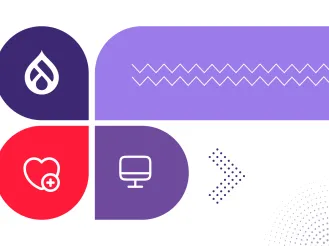Search Engine Copywriting Tips for Business Owners
Do you write your own copy for your business website? Could you be doing it better? Many people have “heard somewhere” that “SEO” or search engine optimization” is important…but they’re not sure why, or how to go about it. And the thought of hiring a big fancy firm to take care of it for thousands of dollars makes them scared. Does this sound like you? Well take heart, if your site has existing copy, this article explains how you can make simple changes yourself that will help your site grab more targeted traffic from search engine rankings.
Optimizing for Keyword Phrases
Before you begin SEO copywriting, it’s important to understand that you want to optimize for keyword phrases rather than single words. Why? Trying to optimize for “restaurant”; is near impossible! If you are a Japanese restaurant, you would be competing with “fast-food restaurant”, “Italian restaurant”, “Greek restaurant”, “restaurant in Boston” et cetera.
You will have better success optimizing for longer phrases like:
- “Japanese restaurant in Vancouver”
- “Vancouver sushi restaurant”
- “Vancouver Japanese restaurant”
- “best Japanese food in Vancouver”
*“Vancouver sushi bar”
These terms will bring you better targeted traffic. People looking for Japanese restaurants in Vancouver will likely type in one of the above rather than “restaurant”.
If you offer services like “dog grooming”, you would also want to include variations like “pet grooming”, “groom your dog” and “dog groomer”. Not only does this make you relevant for the variations that users naturally type, but it will make your copywriting sound more natural than if you used “dog grooming” 10 times on one page.
Creating Specific Pages for 2 – 3 Keywords You want to optimize for all the important products and services you provide. However these may require their own detail pages. Trying to optimize the home page for everything you do or sell will not show the search engines what is specifically important on your page because it appears EVERYTHING is important! Try not to optimize for more than 2 or 3 separate phrases per page.
Another benefit of creating focused pages around products and services is you capture buyers in later buying stages. For example, if Mary types in: “blue widget XYZ replacement cartridge”, she knows exactly what she is looking for and is more likely to buy than someone who is looking for blue widgets.
Finding Keyword Phrases with Keyword Research
If you need keyword phrase ideas, go to the Google Keyword Sandbox tool at: https://ads.google.com/home/tools/keyword-planner/
Enter in your general keywords to get more suggestions, or enter in your URL under the “Site Related Keywords” tab to have the tool extract potential keywords based on your existing copy. You could also do this for a competitor’s site to glean from their SEO efforts.
To get a feel for search volume, select from the “Choose Data to Display” dropdown menu: “Global Search Volume Trends” to get an idea of what forms of your keywords are searched the most. For example, you might discover that search for“computer distributor” more than for “computer distribution”. You want to optimize for the highest search volume phrases more often.
Note that this tool is based on global search trends and has its limitations. Some niche phrases may be very important to your business even though their search volume is relatively low. “Harrison Hot Springs vacation” for example, would not be a high volume search term although it might be a profitable niche keyword for you.
Improving Existing Copy
If you are targeting “music lessons” you probably already have the words “lessons”, “piano”, “singing”, “violin”, “guitar” et cetera sprinkled throughout your site. You can easily start optimizing by turning the solo words into phrases:
Piano lessons, singing lessons, violin lessons, children’s piano lessons, adult singing classes, private singing training in Vancouver, beginner violin lessons, advanced guitar classes…
Using Punctuation Make sure to separate slashes like products/services into products and services or products / services. Search engine spiders ignore brackets, quotation marks and hyphens, so using them won’t hurt you.
FAQ optimization: If, for example, you sell headsets, you can use an FAQ page to use keywords.
Frequently Asked Questions About:
- Corded Headsets
- Binaural Headsets
- WIFI Headsets
- Bluetooth Headsets
- Monaural Headsets
Not only can you use keywords in a reader-friendly way, the bullet points tell the search engines that these things are important on your page.
Local Keywords
If you have a specific city or region you would like to optimize for, try and include that word in your page titles as well as 2 – 3 times in the copy (for a page of 250 words).
Contextual Links
Contextual links are hyperlinks within your copy – also called “anchor text” This gives a bit more weight in search engines so it’s a good idea to name your external links to other sites with keyword phrases as well as hyperlinks to your own pages. Example:
Last week, I reviewed several karaoke bars (link to your review on another page of your site) in Vancouver. Far and away, my favorite is Kawasaki Sushi and Karaoke Bar (links to other site).
If it makes sense to do so, try and turn existing keywords into internal or external links.
Various Spellings
Even if 50% of searchers type “loose weight” you do not want to optimize for misspellings. There are cases where two forms of a word are correct. For example “birth mother” and “birthmother”. Try to optimize for both phrases but on different pages. That way you have a chance to be found for both phrases, but it won’t look like a mistake.
Checking your keyword frequency
http://www.webconfs.com/keyword-density-checker.php
Use this tool if you want a quick count of the frequency and percentage of words on your page or a high ranking competitor’s. Though there is no magic formula for keyword frequency and percentage (density), this is useful to gauge approximately how many times you should include a on a page to rank well.
Is this all Greek to you?
Not every business owner has time to take on his or her own copywriting, nor does every company have the trained staff to do so. For this reason, many look to outsourcing search engine optimization, including copywriting, to Internet marketing consultants. If you don’t feel your organization has the resources to take on SEO copywriting in-house, you would benefit greatly from specialized expertise. An SEO professional can also help you identify the keywords you should be targeting using keyword popularity tools. Even if a consultant’s hourly rate is more than you value your own time, a professional can accomplish higher quality work in less time that it would take you, the end result of increased professionalism, search engine rankings and sales make it well worth the investment.







